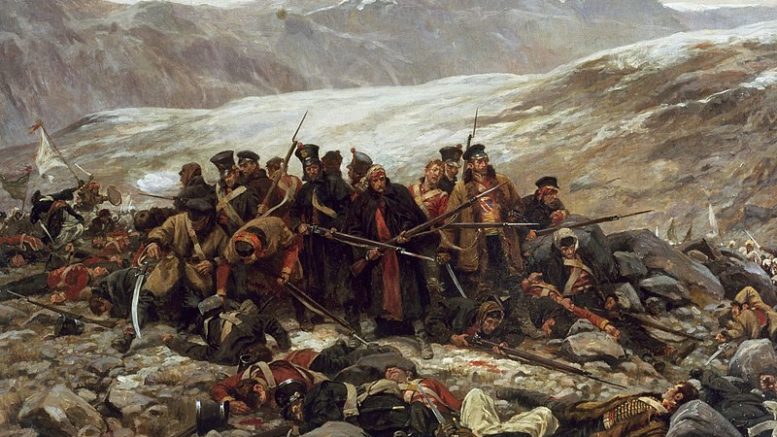Britain’s Fourth Afghan War has ended, just as the other three ended, with both defeat and significant British losses and very little to show for it. The first two Anglo-Afghan wars were fought over 19th century geo-political issues such as keeping the Russian Empire away from British India, and because of Imperial hubris. The 20th century Anglo-Afghan war was all about stopping the creation of an independent Afghanistan and the 21st century one was fought on the premise of stopping Islamic terrorism, which it failed dismally to do.
Because of the tribal nature of Afghanistan, the concept of a central government is less accepted and therefore less effective as it would be in other parts of the world. According to the historian William Dalrymple, writing in Unherd magazine, Afghans owe their primary allegiances not to their King or President or other national leader, but instead to their tribal chiefs. Mr Dalrymple, who has written a book about the First Afghan War, said that “Afghanistan has always been less a state than a kaleidoscope of competing tribal principalities governed through maliks or vakils, in each of which allegiance was entirely personal, to be negotiated and won over rather than taken for granted.” Sadly Mr Dalrymple is correct in his assessment of Afghanistan.
Imposing the values and structures that make up a modern liberal democratic state might have worked in West Germany after World War II where every vestige of the previous regime and the culture it had created had to be rooted out and replaced with something better, but this policy didn’t work in Afghanistan. In West Germany the Germans had been comprehensively defeated on the battlefield, they were absolutely finished. In addition to that the Germans had more or less had enough of what Adolf Hitler’s regime had given them. They’d been demoralised and de-homed by constant Allied bombing and apart from a few fanatic Nazis, they’d had enough of fighting to defend Hitler’s castle of lies that he told about Germany.
However this policy of defeating the enemy and imposing a better form of government on them did not work in Afghanistan. This is primarily in my view because of the tribal nature of Afghanistan where there is little confidence in the idea that a central government and primary loyalty is shown to the tribe. There’s also the fact that the Afghans seem to want to live in the manner that they do, even though it is perfectly plain to us in the West that it is a substandard way that brings little more than poverty, ignorance and violence.
As Mr Dalrymple said in his piece, those who thought that the Fourth Afghan War that lasted from 2001 until 2021, could be won failed to either read history or learn from history. Other leaders of Britain did as is shown by Mr Dalrymple’s quote from former British Prime Minister Harold Macmillan to new Prime Minister Sir Alec Douglas-Home when he took office. ‘Just remember not to invade Afghanistan and you’ll be alright’ was what Macmillan said to Douglas-Home. Sadly this was a lesson that former British Prime Minister Tony Blair failed to learn.
Although Britain has not lost as many troops in the Fourth Afghan War as we lost in the First Afghan War, under 500 as opposed to over 15,000, the latest Afghan war has still caused immense grief to the families of those service personnel who lost their lives in Blair’s Afghan Misadventure. He took us into a war that was ultimately unwinnable and tarred the UK with the biggest military defeat in recent years, possibly even since the Fall of Singapore in World War II.
Of course I recognise that there was a problem that needed to be sorted out with regards Afghanistan, it was a place that was harbouring Islamic terrorists but some of these problems, not all granted, might have been dealt with by a policy of ‘penetrate, punish and pull out’. In that way high profile terrorists could have been targeted without the risk of leaving British boots on the ground for an extended period of time. Such a policy might have worked but then again it might not. But, such a policy might not have ended up with the mess we see today a mess caused by every US President since George W Bush and every British Prime Minister since Blair.
This mess that the Fourth Afghan War has left behind is truly terrible and will have ongoing geo-political influences. In the short term at least it will advantage the Chinese, unless they make the mistakes of the West and try to create a centralised government, who will gain access to Afghanistan’s mineral resources. It remains to be seen whether Afghanistan’s tribal nature does for the Chinese as it did for the UK and US. India is also in a bit of a spot. Not only do they have the nuclear armed Islamic nutwittery of Pakistan on their border but now they also have a dangerous tribal nation in the form of Pakistan backed Afghanistan to their north as well.
Nobody in political authority in the West learned anything from history when it came to Afghanistan. It’s likely to be the case that future historians will not only look very unkindly on the Fourth Afghan War but also bemoan its medium and long term fall out.





